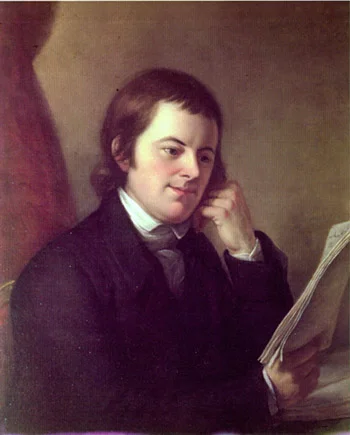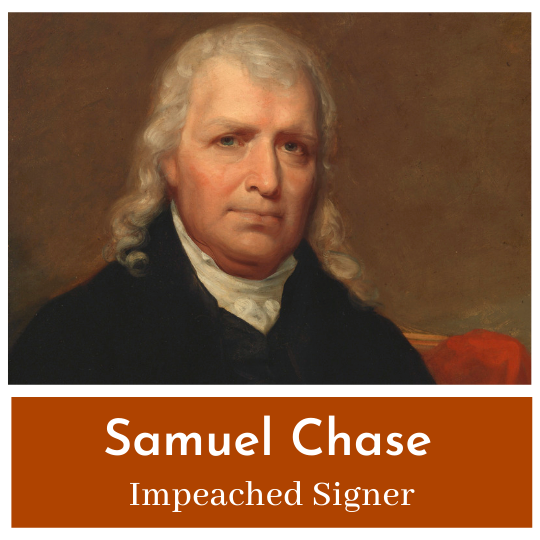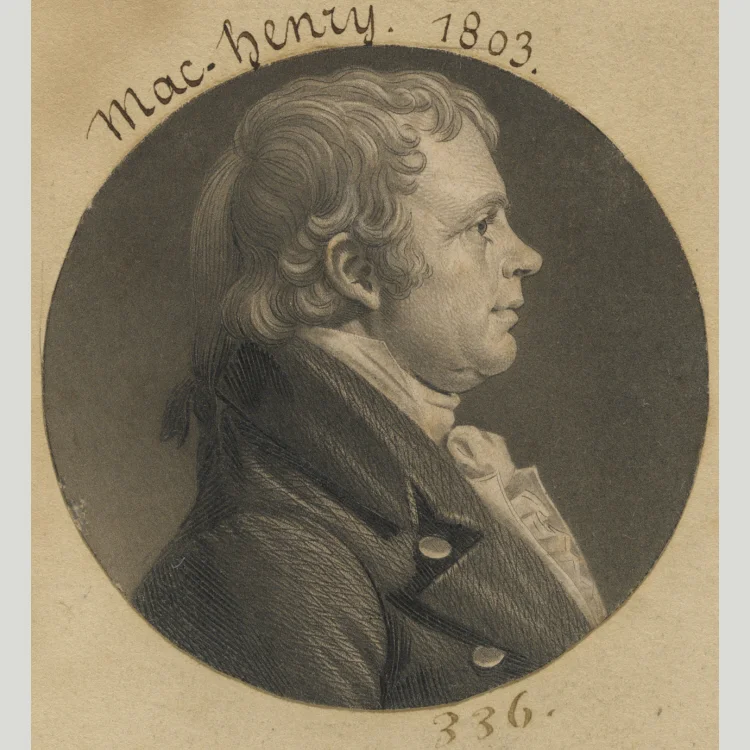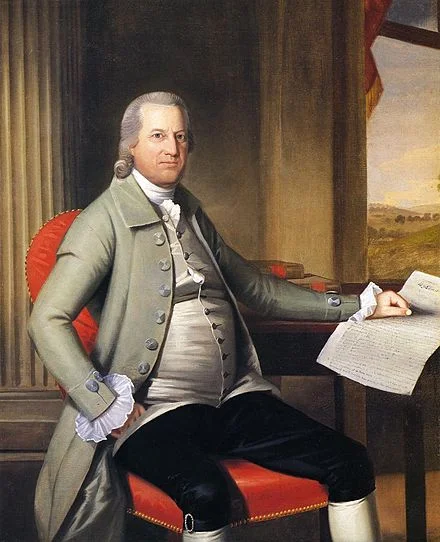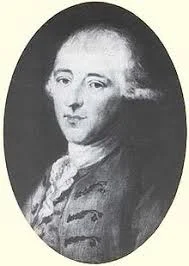Noah Webster wrote the first (and most famous) American Dictionary.
All in Bios
Francis Kinloch's Unheeded Advice
Francis Kinloch was a Continental Congressman and soldier in the Continental Army.
Thomas Johnson Has A Cup Of Coffee On The Supreme Court
Thomas Johnson has the peculiar honor of being the person who spent the shortest amount of time on the Supreme Court.
Congress Impeaches Samuel Chase
Samuel Chase was a signer of the Declaration of Independence who later became a Supreme Court Justice.
James Armistead Is Not Another Face In The Crowd
James Armistead, a slave in Virginia, was inspired by the words of liberty he heard.
Mercy Otis Warren Scribbles Her Way Into History
Mercy Otis Warren was one of the most prolific public writers during the American Revolution.
William Campbell Musters Troops At Kings Mountain
William Campbell was an important leader of the Revolution on Virginia's frontier.
There's A Surgeon In The Cabinet - A James McHenry Story
James McHenry was a signer of the United States Constitution and a Secretary of War during the Washington and Adams Presidencies.
Johnny Appleseed As An American Founder
Johnny Appleseed planted orchards throughout the early United States and helped make the apple a staple of the American experience.
Silas Deane Convinces France To Supply The Continental Army
Silas Deane supplied the Continental Army through the early years of the Revolutionary War through secret talks with France
Timothy Pickering Serves At The Pleasure Of The President
Timothy Pickering was an important subordinate of George Washington during both the American Revolutionary War and his Presidency.
John Wentworth, Jr Is Mysterious To Me
John Wentworth Jr was a signer of the Articles of Confederation and apparently did nothing else.
Alexander McDougall Brings The Army's Demands To Congress
Alexander McDougall was at the heart of the Patriot Movement in New York City.
Oliver Wolcott Is Everywhere
Oliver Wolcott seems to have been constantly back and forth from his duties as Major General of the Connecticut Militia to his responsibilities in the Pennsylvania State House.
George Wythe Educates The Founding Fathers
George Wythe was important as a revolutionary, but even more so as an educator. Many of his best students became revolutionaries themselves, and two even became President of the Unites States.
Edward Langworthy Becomes The Point Man In Revolutionary Georgia
Edward Langworthy was a low key Founding Father who devoted most of his life to educating children and publishing nonfiction works.
William Clingan Navigates Pennsylvania's Internal Politics
William Clingan was a signer of the Articles of Confederation.
John Morton Swings Pennsylvania In Favor Of Independence
John Morton was the first signer of the Declaration of Independence to die.
Elizabeth Lewis Stands Confidently Against The British
Elizabeth Lewis, through bravery and kindness, demonstrates how a woman in a small village could still play a role in the Founding of America.
Pierce Butler Maintains The Resistance
Pierce Butler's major contribution to the Founding was his signing of the United States Constitution.


